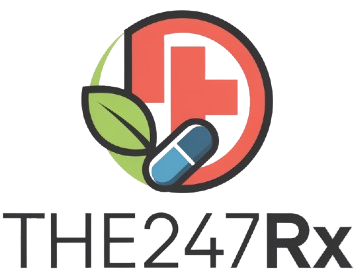Naltrexone is a medication that’s been making waves for its role in treating alcohol and opioid use disorders. By blocking the euphoric effects of these substances, it helps reduce cravings and supports individuals on their journey to recovery.
But, like any treatment, it’s not a one-size-fits-all solution. We’ll discuss here when naltrexone works effectively and when it might not be the best fit.

When Naltrexone Works
Alcohol Use Disorder (AUD)
For many, naltrexone has been a game-changer in managing alcohol dependence. It diminishes the rewarding feelings associated with drinking, making alcohol less appealing. This effect can lead to a decrease in heavy drinking days and an overall reduction in alcohol consumption.
Opioid Use Disorder (OUD)
Naltrexone is also effective for individuals who have detoxified from opioids. It blocks the effects of opioids, reducing the temptation to relapse. Extended-release injectable forms, like Vivitrol, have been particularly beneficial, offering consistent medication levels and improving adherence.
The World Health Organization (WHO) estimates that over 75 million people have alcohol use disorder or dependence worldwide. Naltrexone is a mu-opioid receptor antagonist (Naltrexone – StatPearls – NCBI Bookshelf).
When Naltrexone Might Not Be Effective
Active Opioid Use
It’s crucial to be fully detoxified from opioids before starting naltrexone. Taking it too soon can precipitate severe withdrawal symptoms, which can be quite distressing.
Motivation Levels
Naltrexone tends to be more effective for individuals who are highly motivated to quit drinking or using opioids. Without a genuine commitment to change, the medication’s benefits may be limited.
Side Effects
Some people experience side effects like nausea, headache, dizziness, or insomnia. While often mild, these can deter continued use.
Factors Influencing Naltrexone’s Effectiveness
Type of Substance Use
Studies suggest that naltrexone works better for individuals who drink alcohol for its rewarding effects rather than to alleviate withdrawal symptoms. It doesn’t prevent or relieve the physical side effects of alcohol withdrawal.
Naltrexone has pronounced effects in reducing risky drinking among young adult reward drinkers (high reward/low relief) by reducing urges on days when individuals have higher positive affect and are exposed to a drinking event (Reward drinking and naltrexone treatment response among young adult heavy drinkers – PMC).
Formulation and Adherence
Oral naltrexone requires daily dosing, which can be a hurdle for some. Missed doses can reduce effectiveness. On the other hand, the extended-release injectable form provides a consistent medication level, improving adherence.
FAQs About Naltrexone
How quickly does naltrexone start working?
Oral naltrexone begins to work within an hour after ingestion, while the injectable form takes about two hours to start working.
Can I drink alcohol while taking naltrexone?
Naltrexone doesn’t prevent the intoxicating effects of alcohol, but it can reduce the pleasurable sensations associated with drinking. It’s essential to discuss alcohol use with your healthcare provider while on this medication.
What should I avoid while taking naltrexone?
Avoid using any opioid-containing medications or illicit opioids, as naltrexone blocks their effects and can precipitate withdrawal symptoms. Always inform healthcare providers that you’re taking naltrexone.
Are there any long-term side effects of naltrexone?
Naltrexone is generally well-tolerated. However, some individuals may experience side effects like nausea, headache, or dizziness. Long-term use should be monitored by a healthcare professional.
Is naltrexone addictive?
No, naltrexone is not addictive and doesn’t cause withdrawal symptoms when discontinued.
Can naltrexone be used for conditions other than AUD and OUD?
Research is ongoing, but naltrexone has been explored for other conditions, such as certain behavioral addictions. Consult with a healthcare provider for more information.
What happens if I miss a dose of oral naltrexone?
If you miss a dose, take it as soon as you remember. If it’s almost time for your next dose, skip the missed dose and resume your regular schedule. Do not double up on doses.
Can I take naltrexone if I’m pregnant or breastfeeding?
It’s essential to discuss with your healthcare provider, as the safety of naltrexone during pregnancy or breastfeeding hasn’t been fully established.
Does naltrexone interact with other medications?
Naltrexone can interact with certain medications, especially those containing opioids. Always inform your healthcare provider about all medications and supplements you’re taking.
How long is naltrexone treatment typically continued?
The duration of treatment varies depending on individual needs and progress. Some may benefit from several months, while others might require longer.

A Treatment Plan Is Needed
Naltrexone can be helpful in the treatment of alcohol and opioid use disorders, especially for those committed to recovery and who have completed detoxification. However, it’s not suitable for everyone.
A comprehensive treatment plan, often including counseling and support groups, enhances the chances of success. Always consult with a healthcare professional to determine the best approach for your situation.
Where to buy Naltrexone
Here are the most reliable and trusted sites where you can purchase Naltrexone products:
| HealthyRXs | ✅ Discounted prices ✅ Free shipping on orders over $200 | Visit |





